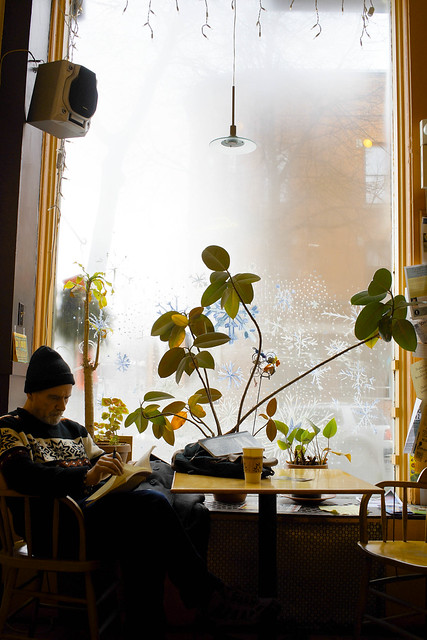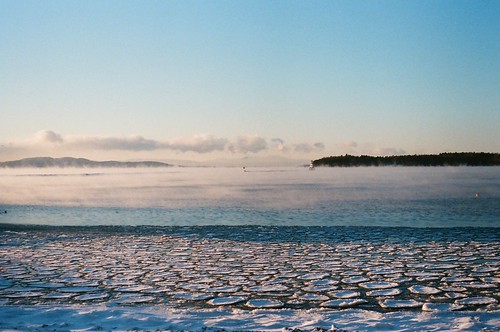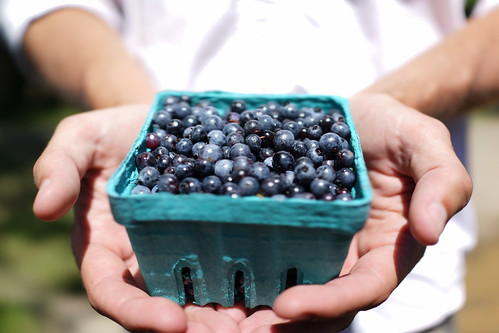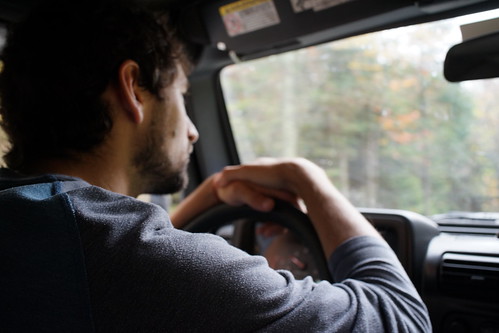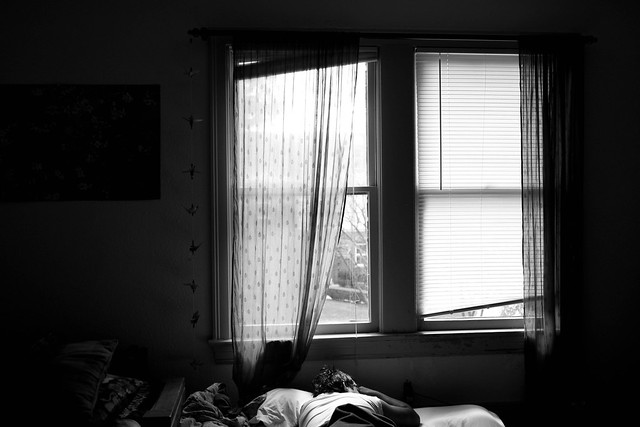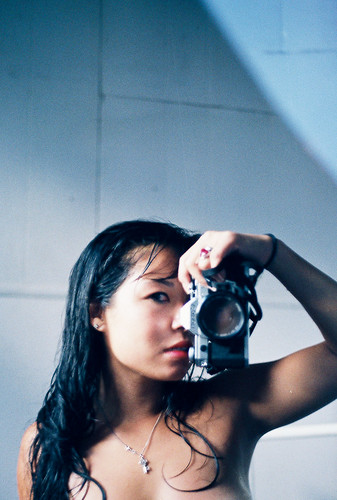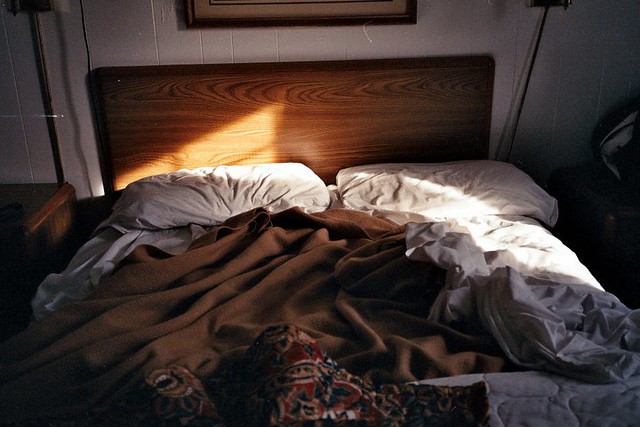Photographer Ji Yeo took these images in the Beauty Recovery Room directly after the women had undergone plastic surgery. Ji Yeo aims to raise awareness for the social pressure on Korean women to adjust to a Western ideal of beauty. As the photographer describes, they’re living in a culture where men are judged on their balance sheet and women by their beauty.She states: “I have been struck by the clear distinction between the women I photographed in Korea and Westerners who seek surgery. Whereas in America, women often focus on altering their bodies (breast enlargements being the most popular), in Korea most women focus on facial adjustments such as: making their eyes bigger and wider, minimizing their cheekbones and jaw lines, and making their noses higher and narrower. Whereas sexiness is highly emphasized in America, in Korea, notions of childlike femininity and innocence reign supreme. It is this difference that compels me; regardless of geography or body type women are willing to spend thousands of dollars and endure extreme cuts, bruises, and scarring in order to achieve beauty.”
Showing posts with label photography. Show all posts
Showing posts with label photography. Show all posts
Wednesday, June 4, 2014
Read this on ignant today. Powerful. The pressure on women to look, dress, and behave in particular ways in most cultures has not lifted. I admit that I feel the intensity of it here in NYC.
Labels:
articles,
photography
Tuesday, March 11, 2014
Wednesday, January 8, 2014
Labels:
photography
Monday, October 14, 2013
some new photos posted.
I.
I.
with blueberries, somewhere in the middle of maine
“And in the end, we were all just humans…Drunk on the idea that love, only love, could heal our brokenness.”
- F. Scott Fitzgerald
there was a boat, and there were only small amounts of wind. the water was too cold and the air was barely salty enough, and we paused too long for lack of breeze. but, well, nothing worth anything ever happens without some amounts of interruption. there was music at night, my toes against his thighs. We walked and stood in line, we ate pastries and pasta in the wrong but ever-so-right order. At night, the dark knight appeared as well as so many questions in our fingers.
and, well, there was only one way to find out the answers.
II.
driving, autumn in vermont
it was more of an exhalation than an entire breath-
we were unprepared for it. but we folded it until it felt small in our hands and held it quietly in our mouths while exchanging questioning glances.
it felt too late. but really, it was exactly how i had hoped. it was gripping, the humor and the exaltation. no roof, stars, impatient water, interminable road, infinities that felt familiar, unbearably tangled hair, warm hands, muddy dashboard.
and blue.
“If something anticipated arrives too late it finds us numb, wrung out from waiting, and we feel - nothing at all. The best things arrive on time.”
- Dorothy Gilman
Labels:
photography,
prose,
quotes,
rk,
travel
Thursday, January 17, 2013
“I was satisfied with haiku until I met you, but now I want a Russian novel, a 50-page description of you sleeping.” - Dean Young
Labels:
photography,
quotes
Tuesday, November 20, 2012
it seemed normal, even likely at the time. this hope.
(petals falling though it wasn't windy,
sunny though it wasn't warm,
pollen though i couldn't smell it,
sky though we couldn't reach it,
light though it wasn't blinding,
tree though it was more flower,
powerlines though barely showing,
sunny though it wasn't warm,
pollen though i couldn't smell it,
sky though we couldn't reach it,
light though it wasn't blinding,
tree though it was more flower,
powerlines though barely showing,
spring, though this hope was not really of any season)
Labels:
photography,
rk,
writing
Friday, October 19, 2012
i started another project to document my meandering. (when will a project be about stability? i'm not sure).
at times i stop taking my camera with me because sometimes it is too cumbersome. when documentation gets in the way of adventure, a photographer stands at the edge of crisis.
fortunately, some tools have made it easier to capture the mundane spectacularity of travel. a Facebook acquaintance recently challenged the idea of photographing sunsets and things that surround us daily, "because they are so common." i fiercely disagree.
at times i stop taking my camera with me because sometimes it is too cumbersome. when documentation gets in the way of adventure, a photographer stands at the edge of crisis.
fortunately, some tools have made it easier to capture the mundane spectacularity of travel. a Facebook acquaintance recently challenged the idea of photographing sunsets and things that surround us daily, "because they are so common." i fiercely disagree.
Labels:
inspiration,
photography,
rk,
travel
Tuesday, October 9, 2012
I've been thinking a lot about photography. And lack thereof. I recently attended my friend Sam's annual studio opening, and I felt this emptiness about how I don't find time to shoot anymore.
Traci posted this today:
(On Value Not Yet Given)
Picking up a camera is hard.
(I'm saying a camera because it's what I use more often, but I could write pen, paintbrush, woodblock and chisel, etc.)
It takes time. It takes confidence (or blissful ignorance). It takes a suspension of disbelief.
Mostly, it takes practice.
Composing an arbitrary frame onto reality (often, within half a second), seeing or falsifying the light, knowing your camera well enough to make or procure settings, not forgetting processing, printing and much more -- these are decision that make photography a process.
Forcing yourself to pick up the camera: taking it with you on a walk, taking it with you to university, taking it with you to share breakfast with friends, taking it with you to the zoo, taking it with you while you sit on the couch with your sister and read a magazine: this is the process.
But the editing. The Choosing which image. The seeing your photograph less with the eyes and more with the self.
This is the genius of photography. This is what makes it, for me, art.
You shoot a roll of photos, but how do you decide which one rises, which one you share or tuck away so as keep it solely yours?
What gives value to a particular image?
This is the art of photography (and of all other disciplines, I think).
How do I decide an image of mine -- shot off the cuff and in between a bunch of crappy frames -- has value?
I shot my first roll of film when I was eighteen. Which means that next year I will have had the knowledge (if not always the machinery, money, interest, etc.) to make film photographs for half my life.
Looking back, my sense of image-value has been a clear trajectory connected to what other art I engaged.
You make a photo and give it value. I see it and, in turn, give my own similar work value.
This is how artistic themes develop.
I remember the first time I fell in love with a photograph of a tree shot (I think) in a hand-held long exposure.
I still make photographs that are in dialogue with this very first image.
The explosion of multiple exposures over the last couple of years (including by me) is an example of this.
We're now following a trend that someone somewhere learned how to do with a new effectiveness, and they were willing to share.
What awes me are those who seemingly develop an aesthetic that doesn't obviously relate to anyone else's.
Maybe I'm overlooking their overlap. Probably.
When I downplay what I'm making -- more so, what I'm capable of making -- it's because I'm aware of how deeply my work is engaged with the other work surrounding it.
I'm honest about this; that perhaps gives me a slight advantage. (Not to say that I'm aware of all of my influences or how they change me.) But I do know that, no matter how I connect the work to my own psychology and decision-making, the value has been instigated outside me.
Therefore, I never claim ownership.
I can only say, picking up a camera is hard, knowing how your camera works and pushing its limits is hard, sharing and exposing what you've made that you've given value is hard.
These must be enough, temporarily.
Labels:
art,
inspiration,
photography
Wednesday, October 3, 2012
Saturday, September 1, 2012
Wednesday, August 22, 2012
Wednesday, August 15, 2012
i took this stealthily when they weren't looking during my visit with j to the metropolitan museum of art in nyc.
"For the Blind series, Calle photographed people born without sight and asked them to describe "their image of beauty." Juxtaposing words and images, the artist compounded various modes of apprehension in order to point out their inevitable lack- the blind spot implicit in all representation. Cleverly undercutting objective notions of truth and beauty, she instead locates the meaning of art within the infinite, irreducible responses of the beholder."
Labels:
art,
inspiration,
photography
Sunday, July 22, 2012
posted at flickr/rosekuo
self,
in a bathroom in a house that's not mine, in a mirror that was not whole, with a camera that stopped working afterwards.
houston, tx.
.
in a bathroom in a house that's not mine, in a mirror that was not whole, with a camera that stopped working afterwards.
houston, tx.
.
i have not worked at taking a self portrait in the past four years.
since then, I've ignited, fought, and settled revolutions within my heart- won or lost I can't tell, but perhaps that was never the purpose.
-
i am reading a book about change. and the most ground-shaking point in the book is that many things can effect change, but the factor that creates permanent change is belief. Higher powers and a transformation of habit can help us change, but it is the capacity to BELIEVE that things will get better that makes ALL the difference.
Todd Heatherton said, "Change occurs among other people. It seems real when we can see it in other people's eyes."
i have friends and family who surround me, sentinels in the darkness of the past two years. They have guided me through the storms, and they have been my most powerful weapons in these revolutions of heart.
Labels:
inspiration,
photo,
photography,
quotes,
rk
Tuesday, July 10, 2012
On "Reclaiming Travel"
My friend Tu posted about a New York Times blog article about travel, and I thought it was such a fantastic, relevant read.
In the past five years, the amount of time I have spent in transit has been, in short, astounding. Even to myself. Not in a way that demands recognition or bragging, but in a way that serves up the questions of "why?" and "how?"
Often I receive curious inquiries about how I travel so often. and my reasons for it. While in many ways it is inexplicable, I can answer that I am a student of this life and this world. Far too often, people assume that travelers are looking to "hit the landmarks" and "check off the bucket list." While I spend a relatively inordinate amount of time traveling, I tend to spend more time in one city or country rather than hurry around trying to "squeeze" as many places in as possible.
Travel, for me, is not just about seeing the sights. I believe that the discovery of ourselves as humans lies in understanding others. I believe that the realm in which possibility is created is only created once we experience what is outside ourselves.
While there are pros and cons to what we identify as "tourism," my focus in travel is about something different. It is about hearing and marveling at different languages, at the way others walk, at other people's choices in leisure, at landscape, at how clouds look when going westward, at how the sunrise looks when going eastward, at the utensils people use to eat, at the vast vocabulary for "snow," at idioms, at proverbs, at the way salt tastes in different seas, at the way the water changes color when the waves break across different horizons, at the usage of different terms of endearment, at the way people regard each other physically, at the forms of public transportation, at the way people sit to dine. Photography, for me, is not just about snapshots- it's a study of the way others' eyes move, it's a wandering of how sunlight moves across land, it's a capture of emotion in an ordinary moment, it's a peek at the way others seek and execute towards their dreams.
This life- this is not just a search for myself, but a search for myself in relation to other people and in the presence of other cultures. Aloneness while traveling is not always loneliness, but a contemplation on what it means to be human, what it means to be inherently vulnerable, yet inherently capable of reaching any combination of possibilities.
It is my hope that whether I am traveling or staying in one place, I will never stop searching.
(photographs below from one of my recent trips to the big apple, and one from galveston)






-----------------------------
The New York times article is below. I have highlighted a few items that I found particularly meaningful in italics.
Reclaiming Travel
By ILAN STAVANS and JOSHUA ELLISON
July 7, 2012, 3:00 PM
http://opinionator.blogs.nytimes.com/2012/07/07/reclaiming-travel/
What compels us to leave home, to travel to other places? The great travel writer Bruce Chatwin described nomadism as an “inveterate impulse,” deeply rooted in our species. The relentless movement of the modern world bears this out: our relative prosperity has not turned us into a sedentary species. The World Tourism Organization, an agency of the United Nations, reported nearly a billion tourist arrivals in 2011. Some 200 million people are now living outside their country of birth.
Our once-epic journeys have been downsized to cruise ships and guided tours.
This type of massive movement — the rearrangement, temporary or permanent, of multitudes — is as fundamental to modern life as the Internet, global trade or any other sociopolitical developments. Certainly, many of our most intractable collective challenges as a society are directly linked to our mobility: urbanization, environmental depletion, scarcity and, of course, immigration. An immigrant is a traveler without a return ticket.
In the Bible, the human journey begins with an expulsion. God’s chosen people are also those condemned to wander. Not only wander, but wonder: Why are we in exile? Where is home? Can this rupture ever be repaired? “Gilgamesh,” the Icelandic sagas and “The Odyssey” are all about the itinerant life. Yet these characters don’t see travel as we moderns do. They embark on journeys of mythic significance — the literature of travel in the premodern era did not recognize travel for leisure or self-improvement. Today, our approach to travel is defined not by archetypal imagery but, rather, according to our own mostly prosaic trips. Literature, to be sure, still produces grand quests; likewise, there are still many people whose journeys are precarious and momentous on an epic scale.
For the most fortunate among us, our travels are now routine, devoted mainly to entertainment and personal enrichment. We have turned travel into something ordinary, deprived it of allegorical grandeur. We have made it a business: the business of being on the move. Whatever impels us to travel, it is no longer the oracle, the pilgrimage or the gods. It is the compulsion to be elsewhere, anywhere but here.
St. Augustine believed that “because God has made us for Himself, our hearts are restless until they rest in Him.” We often think of restlessness as a malady. Thus, we urgently need to reclaim the etymology of restlessness — “stirring constantly, desirous of action” — to signal our curiosity toward what isn’t us, to explore outside the confines of our own environment. Getting lost isn’t a curse. Not knowing where we are, what to eat, how to speak the language can certainly make us anxious and uneasy. But anxiety is part of any person’s quest to find the parameters of life’s possibilities.
The act of traveling is an impossibly broad category: it can encompass both the death march and the cruise ship. Travel has no inherent moral character, no necessary outcome. It can be precious or worthless, productive or destructive. It can be ennobling or self-satisfied. The returns can be only as good as what we offer of ourselves in the process. So what distinguishes meaningful, fruitful travel from mere tourism? What turns travel into a quest rather than self-serving escapism?
George Steiner wrote that “human beings need to learn to be each other’s guests on this small planet.” We usually focus on the ethical imperative of hospitality, on the obligation to be a generous host. When we travel, though, we are asking for hospitality. There’s great vulnerability in this. It also requires considerable strength. To be a good guest — like being a good host — one needs to be secure in one’s own premises: where you stand, who you are. This means we tend to romanticize travel as a lonely pursuit. In fact, a much deeper virtue arises from the demands it makes on us as social beings.
Travel is a search for meaning, not only in our own lives, but also in the lives of others. The humility required for genuine travel is exactly what is missing from its opposite extreme, tourism.
Modern tourism does not promise transformation but rather the possibility of leaving home and coming back without any significant change or challenge. Tourists may enjoy the visit only because it is short. The memory of it, the retelling, will always be better. Whereas travel is about the unexpected, about giving oneself over to disorientation, tourism is safe, controlled and predetermined. We take a vacation, not so much to discover a new landscape, but to find respite from our current one, an antidote to routine.
There are still traces of the pilgrimage, even in tourism, though they have become warped and solipsistic. Holy seekers go looking for oracles, tombs, sites of revelation. Tourists like to visit ruins, empty churches, battlefields, memorials. Tourist kitsch depends on a sterilized version of history and a smug assurance that all of our stories of the past are ultimately redemptive — even if it is only the tourists’ false witness that redeems them. There’s no seeking required, and no real challenge, because the emotional voyage is preprogrammed. The world has become a frighteningly small place.
The planet’s size hasn’t changed, of course, but our outsize egos have shrunk it dramatically. We might feel we know our own neighborhood, our own city, our own country, yet we still know so little about other individuals, what distinguishes them from us, how they make their habitat into home.
This lack of awareness is even more pronounced when it comes to different cultures. The media bombards us with images from far-away places, making distant people seem less foreign, more relatable to us, less threatening. It’s a mirage, obviously. The kind of travel to which we aspire should tolerate uncertainty and discomfort. It isn’t about pain or excessive strain — travel doesn’t need to be an extreme sport — but we need to permit ourselves to be clumsy, inexpert and even a bit lonely. We might never understand travel as our ancestors did: our world is too open, relativistic, secular, demystified. But we will need to reclaim some notion of the heroic: a quest for communion and, ultimately, self-knowledge.
Our wandering is meant to lead back toward ourselves. This is the paradox: we set out on adventures to gain deeper access to ourselves; we travel to transcend our own limitations. Travel should be an art through which our restlessness finds expression. We must bring back the idea of travel as a search.
--
Ilan Stavans is a professor of literature at Amherst College. Joshua Ellison is the editor of the literary journal Habitus.
Labels:
articles,
inspiration,
photo,
photography,
rk,
travel
Thursday, April 26, 2012
I went to the ICP and found Weegee's exhibit informative, but Chien-Chi Chang's work was what really hit home. I stood in front of the exhibited contact sheet and wrote this down from the article:
"I started doing my single-frame project in 2008... Usually when you shoot, you work the image. You shoot a strip of film and pick the best. I work it, too, but in my heart or mind. I press the shutter when I feel connected. I don't really care about the 'before' and 'after' anymore. I feel that one shot is enough. Sometimes I might feel I'm missing the so-called 'decisive moment,' but when you accept you're going to shoot this way, you accept that you'll be missing something: you win some, you lose some. I take pictures increasingly slowly, trying to make every frame count even more. I spend time watching, observing, interacting. Sometimes I feel, 'enough,' and I put down the camera and have a bowl of tea."
Chien-Chi Chang, Taiwanese photographer
Quote: "Photography is still instinctual, but I am more disciplined now. I am trying to make every frame count, just as in Tai Chi every breath counts."
Labels:
photography,
quotes,
rk
Thursday, April 19, 2012
"these are the moments that inspire me to take pictures. so quiet you could hear a pin drop. your heart beating. one out of a million that feels eerily similar, like a carbon copy of a copy. it feels like nothing. it has happened before and it will happen again. you would forget it if you even noticed it’s there.
but it is there. it’s there all the time.
and it’s your life.
happening."
- mehmet
but it is there. it’s there all the time.
and it’s your life.
happening."
- mehmet
Labels:
photography,
quotes
Monday, December 5, 2011
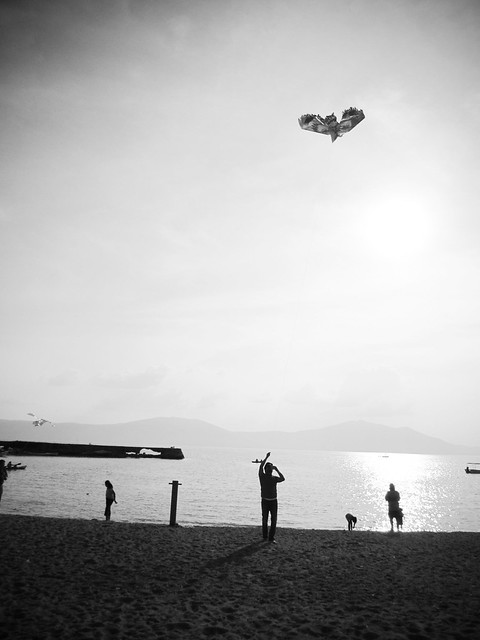
"I'm sorry for my inability to let unimportant things go, for my inability to hold on to the important things.”
― foer
Labels:
photography,
quotes
Tuesday, August 23, 2011
Monday, August 22, 2011
saturday, march 17, 2007
i took down this quote.
"... in whatever one does, there must be a relationship between the eye and the heart. One must come to one's subject in a pure spirit. There must be time for contemplation, for reflection about the world and the people about one. If one photographs people, it is their inner look that must be reflected. One must reveal what goes on inside them, as well as their relation to the outer world."
Henri Cartier-Bresson, on Portraits.
i took down this quote.
"... in whatever one does, there must be a relationship between the eye and the heart. One must come to one's subject in a pure spirit. There must be time for contemplation, for reflection about the world and the people about one. If one photographs people, it is their inner look that must be reflected. One must reveal what goes on inside them, as well as their relation to the outer world."
Henri Cartier-Bresson, on Portraits.
Labels:
past,
photography,
quotes
Tuesday, May 31, 2011
I suppose I could become a wave in the night. They come in, rocks and tide, ripping the sand and following the wind.
I suppose I could become like my Chinese name. It means "joy", but who knows what that really is anyways?
I suppose I could become like Carl Sandburg's fog. sitting on my silent haunches. Coming in on little cat feet.
"And I became fierce like a lion
Then tender like the evening star."
- Rumi
by the way, I updated www.rosekuo.org.







I suppose I could become like my Chinese name. It means "joy", but who knows what that really is anyways?
I suppose I could become like Carl Sandburg's fog. sitting on my silent haunches. Coming in on little cat feet.
"And I became fierce like a lion
Then tender like the evening star."
- Rumi
by the way, I updated www.rosekuo.org.







Labels:
photography,
quotes
Subscribe to:
Posts (Atom)
